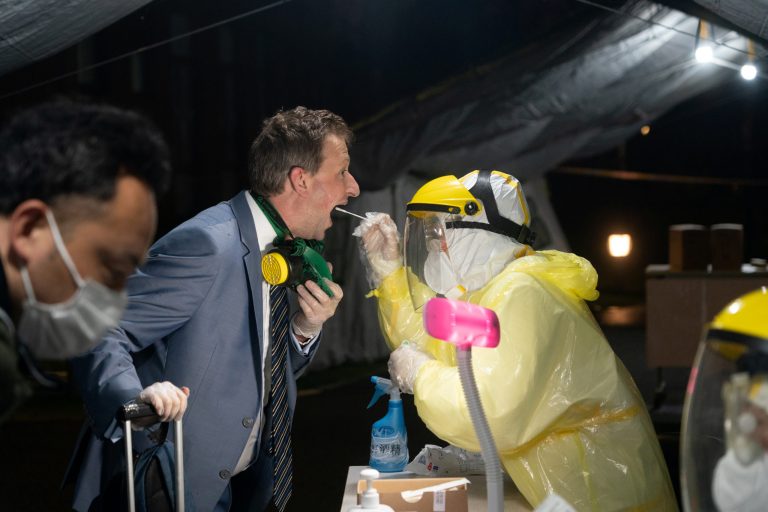
Australians began living under strict new lockdown rules on Monday as coronavirus cases topped 1,600 and authorities denied entry to a cruise ship carrying hundreds on board complaining of respiratory illnesses.
As new restrictions closing non-essential services came into effect, there were clear signs of economic and social stress with long queues forming outside offices of the main welfare agency across the country.
After reporting only a gradual spread in January, the number of COVID-19 cases in Australia now appears to be tracking the much sharper increases seen elsewhere with the most populous states of New South Wales and Victoria recording the fastest rises.
Most states have now closed their borders to travellers from other parts of the country and effected their own lockdown laws, in addition to the national curbs announced on Sunday.
Western Australia on Monday banned passengers on board the Swiss-owned MSC Magnifica cruise ship from disembarking.
Of 1,700 passengers on board the ship, more than 250 have complained of respiratory illnesses. It was due to dock at Western Australia’s Fremantle port as early as Monday evening.
That decision comes days after 2,700 passengers disembarked from the Ruby Princess cruise ship in Sydney harbour, with 48 on board subsequently testing positive for the virus.
“I will not allow what happened in Sydney to happen here,” West Australian Premier Mark McGowan said. “We will not allow passengers or crew to wander the streets.”
A spokesman for MSC Cruises did not immediately respond to requests for comment.
‘TOUGHEST YEAR OF OUR LIVES’
New measures designed to minimise the spread of the virus mean many non-essential services, including pubs, clubs, cinemas, gyms and houses of worship, were closed on Monday.
“There will be no more going to the pub after work, no more going to the gym in the morning, and no more sitting down for brunch at a cafe,” Australian Prime Minister Scott Morrison told parliament on Monday.
Morrison said the immense health and economic challenges of the global pandemic would be the “toughest year of our lives” and warned Australians to prepare for shutdowns that could last six months.
Despite warnings to practice social distancing, thousands flocked to Sydney’s Bondi Beach and frequented bars and restaurants over the weekend.
Morrison said the new measures were needed to enforce social distancing, and more draconian measures could be enacted down the line.
Supermarkets, pharmacies, freight and retail will continue to trade, while cafes and restaurants will only be able to offer takeaway and delivery services.
The economic fallout of the crisis was visible on the streets on Monday with hundreds of Australians lining up outside government offices in Sydney and Melbourne to register for social security payments. Many tried to practice social distancing as lines stretched around the block.
Australian coronavirus cases spike, cruise with sick passengers denied entry
The website for government welfare services crashed on Monday, overwhelmed by an “unprecedented” number of online queries.
The benchmark index plunged more than 8% at the open, a day after the government pledged an extra A$66.4 billion ($38.06 billion) to combat the impact of the disease.
Several states have implemented strict measures to combat the outbreak, with Queensland, Tasmania, South Australia and Western Australia tightening domestic border controls, while the school term was cut short in Victoria.
In New Zealand, Prime Minister Jacinda Ardern said measures to contain the virus would be intensified, with all schools closed from Tuesday and non-essential services shut in the next 48 hours.
Ardern said the country had a “unique window” to “break the chain of community transmission”.
In the neighbouring Pacific islands, where experts fear under-developed healthcare facilities could easily be overwhelmed, a state of emergency was declared in Papua New Guinea after the country recorded its first case of the virus.
On Monday, the tiny island of Guam, a U.S. territory in Micronesia, recorded the region’s first coronavirus fatality.





